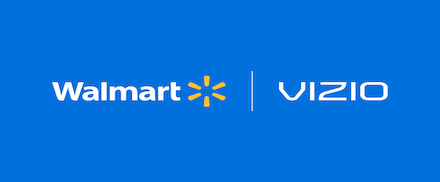 |
||||||||||||
|
||||||||||||
| Senate Poised To Enact Historic Tech Regulation With KOSA Update |

Image sourced from Shutterstock
|
| After months of negotiations, the Kids Online Safety Act (KOSA) secured support from over 60 backers for a comprehensive bill to expand online protections for children. It could pave the way for the most significant congressional effort in decades to regulate tech companies. This week, Senators Richard Blumenthal (D-CT) and Marsha Blackburn (R-TN), sponsors of KOSA, adjusted the bill's wording to incorporate feedback from diverse stakeholders, including groups advocating for historically marginalized communities and conscientious industry representatives. ParentsSOS, a coalition of 20 families who have tragically lost a child to various online dangers, welcomed the unveiling of the revised edition. The updated KOSA has garnered support from the NAACP and leading gaming company Nintendo. With 62 co-sponsors in the Senate, including Majority Leader Chuck Schumer (D-NY), the Senate will vote on the Act in the upcoming weeks. Many human rights, digital rights, and tech industry groups initially opposed the bill over concerns that state enforcers might target young LGBT users. However, the updated version addresses these concerns by shifting key enforcement powers from state attorney generals to regulators at the Federal Trade Commission. Senator Blumenthal's office shared a letter from several LGBT rights groups, including GLAAD and the Human Rights Campaign, withdrawing their opposition of the measure. These groups stated that the adjustments made to KOSA "significantly mitigate the risk of it being misused to suppress LGBTQ+ resources or stifle young people's access to online communities." Privacy-first groups like the Electronic Frontier Foundation (EFF) and Fight for the Future are wary of the bill, even with the amendments. They argue that it could lead to unconstitutional content filtering and restrict access to critical information while infringing on free speech. Even if KOSA passes the Senate, it requires substantial new backing in the House to become law. Disagreements between the chambers over tech priorities have prevented the House from reviewing the bill. Maybe the contentious Senate hearing pulled on the House's heartstrings. Advocates for children's safety are hopeful that the Senate's passage of KOSA will spur the House into action. – AB |
| DoubleVerify Launches Tiers to Help Curb MFA Hysteria |
| Last fall, AdMonsters asked: Are all MFA sites bad? That question bubbled up after AdMonsters interviewed consumers who said they like advertising, enjoy engaging with ads, and don't mind a lot of ads as long as the site's content is good. They also frequently click on articles from social media feeds. You know, all the stuff that screams "MFA! MFA!" Granted, they're a subset of consumers, but they exist and shop. That's why DoubleVerify is helping advertisers distinguish between sites that are atrocious money grabs and those that offer value for advertisers because real consumers engage with them. Rather than applying an overly broad MFA label and blocking sites, DoubleVerify will use a blend of human and AI auditing to assess and apply tiers of brand suitability: high, medium, and low. They will base tiers on ad density, paid vs. organic traffic sources, and ad intensity (e.g., how long ads are in view before they're refreshed). Almost as soon as the ANA released its programmatic quality report last year, warning advertisers about the dangers of MFA sites, publishers began pushing back. The despised attributes of MFA sites — too many ads, purchased traffic, syndicated content — are features that some legitimate sites deploy. In Confessions of an MFA Publisher, an anonymous MFA publisher told Digiday, "But to come up with this new category to say, 'Hey, you're reaching real people, and real people are engaging with your content and staying on the page for a long time, you're just showing too many ads so we're going to ban you.' To publicly condemn the practice seems strange." Diverse-owned media owners disagree that sites should be labeled MFA just because they purchase traffic. Dévon Christopher Johnson, CEO and founder of BleuLife Media Group and co-founder of non-profit organization BOMESI, told AdMonsters that Black-owned publishers rely on buying ad traffic and that telling them not to is "like telling a developing country 'Don't use fossil fuels' after Americans used fossil fuels for 150 years to grow its economy. It's kind of a slap in the face to do that." Applying tiers to MFA sites is good for the industry. Legitimate publishers spend a lot of time assessing and understanding their readers' tolerance for ads. Some content categories — think crafting and cooking sites — have high ad densities and rely on social media traffic, but they still offer value to both readers and advertisers. Understanding the nuances of MFA sites will prevent the industry from throwing the baby out with the bathwater. – SS |
| SP500+: One of The Trade Desk’s Solutions for Cookie-Free Targeting |
| The Trade Desk is inviting ad buyers to test a new product called SP500+, which enables audience targeting across a group of 500+ premium sellers and publishers (thus the name), according to Adweek. SP500+ includes premium publishers like The New York Times, Disney+, Hulu, and other publishers that accept DSP demand. Why did The Trade Desk build SP500+? Adweek highlights that while DSPs typically focus on helping buyers identify their ideal audiences across the web, The Trade Desk wanted to buck that trend by enabling buyers to find the best media partners and environments for their campaigns. Currently, the only way for programmatic buyers to focus on specific publishers is to participate in a PMP. However, private deals can be challenging to negotiate and set up, steps TTD seeks to skip. Before anyone gets too excited, it’s important to note that while TTD told Adweek that The New York Times is part of SP500+, the publisher was unaware of that fact. AdExchanger acknowledged that publishers prefer using their own PMPs where they’re not competing with 499+ other publishers for buyers. – SS |
| Google Updates eCPM Payment for Publishers |
| Google is updating AdSense to an eCPM payment model for publishers, confirms Ginny Marvin, Google Ads Liaison. Previously, publishers received 68% of ad revenue, but now it's split between buy-side and sell-side rates. Under the new structure, publishers get 80% of revenue after advertiser fees. Despite these changes, Google expects overall revenue to remain around 68%. The transition aims to align AdSense with industry standards for display advertising, making it easier to compare earnings across platforms. Publishers should understand the shift to eCPM, potentially adjusting content and SEO strategies to maximize revenue. Compliance with AdSense policies and Better Ads Standards is crucial for maintaining ad revenue. Overall, publishers can thrive by leveraging these changes through informed monitoring and adaptation. – AB |










